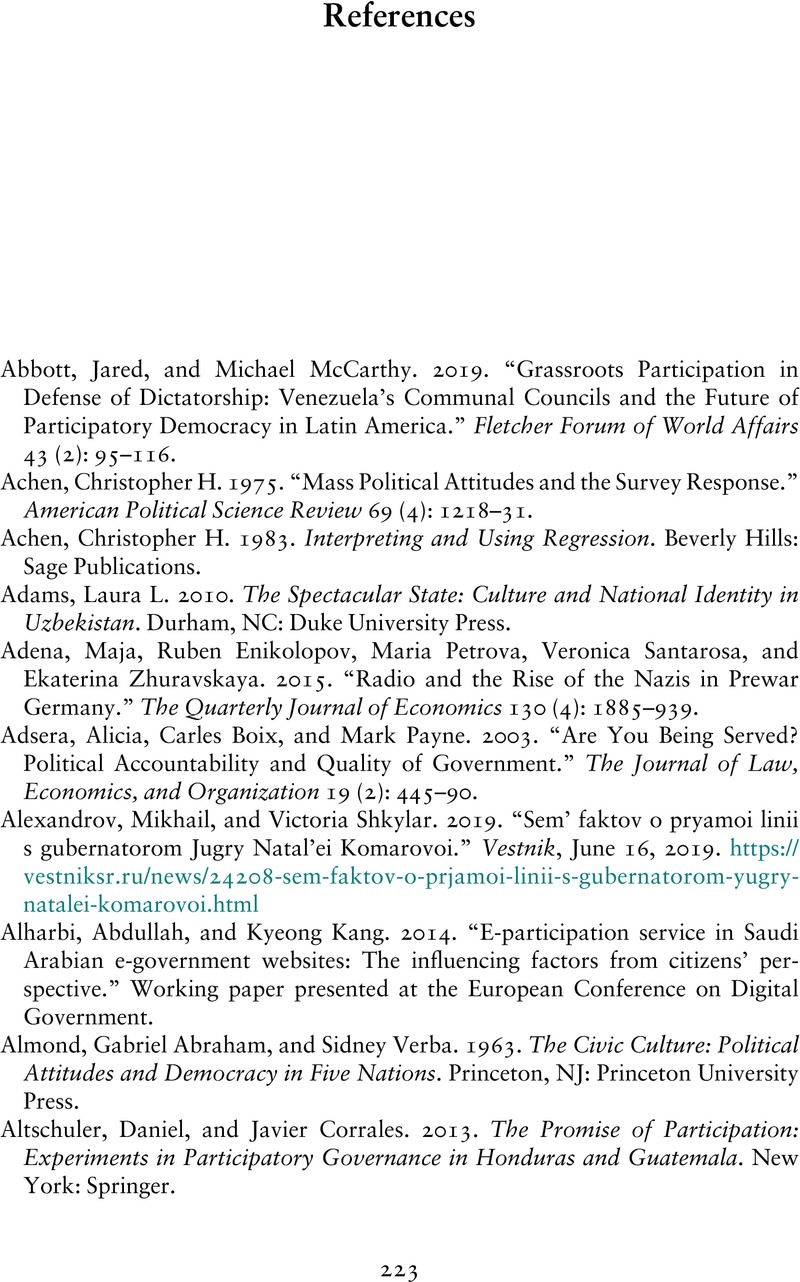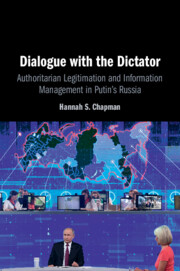Book contents
- Dialogue with the Dictator
- Dialogue with the Dictator
- Copyright page
- Contents
- Figures
- Tables
- Acknowledgments
- 1 Introduction
- 2 A Theory of Participatory Technologies
- 3 Varieties of Participatory Technologies in Nondemocracies
- 4 The Direct Line with Vladimir Putin
- 5 Information Management, Performative Governance, and Image Making in the Direct Line
- 6 Manufacturing Consent
- 7 Who Buys In?
- 8 Conclusion
- Appendices
- References
- Index
- References
References
Published online by Cambridge University Press: 15 February 2024
- Dialogue with the Dictator
- Dialogue with the Dictator
- Copyright page
- Contents
- Figures
- Tables
- Acknowledgments
- 1 Introduction
- 2 A Theory of Participatory Technologies
- 3 Varieties of Participatory Technologies in Nondemocracies
- 4 The Direct Line with Vladimir Putin
- 5 Information Management, Performative Governance, and Image Making in the Direct Line
- 6 Manufacturing Consent
- 7 Who Buys In?
- 8 Conclusion
- Appendices
- References
- Index
- References
Summary

- Type
- Chapter
- Information
- Dialogue with the DictatorAuthoritarian Legitimation and Information Management in Putin's Russia, pp. 223 - 248Publisher: Cambridge University PressPrint publication year: 2024

